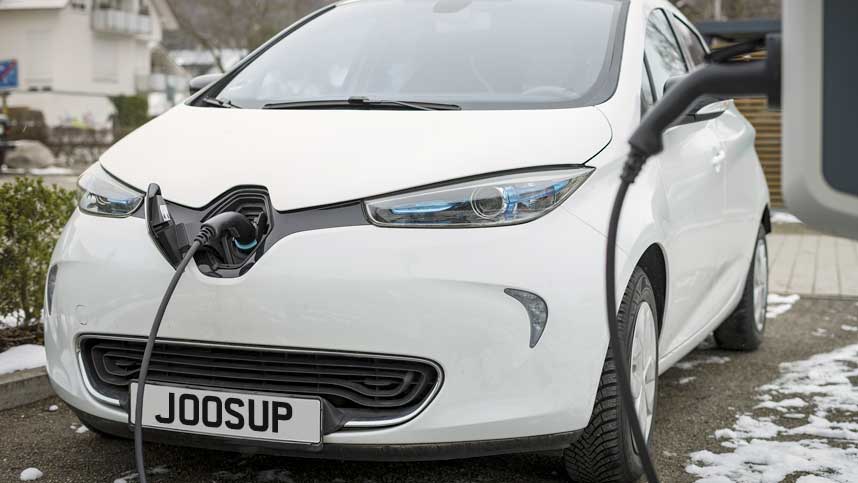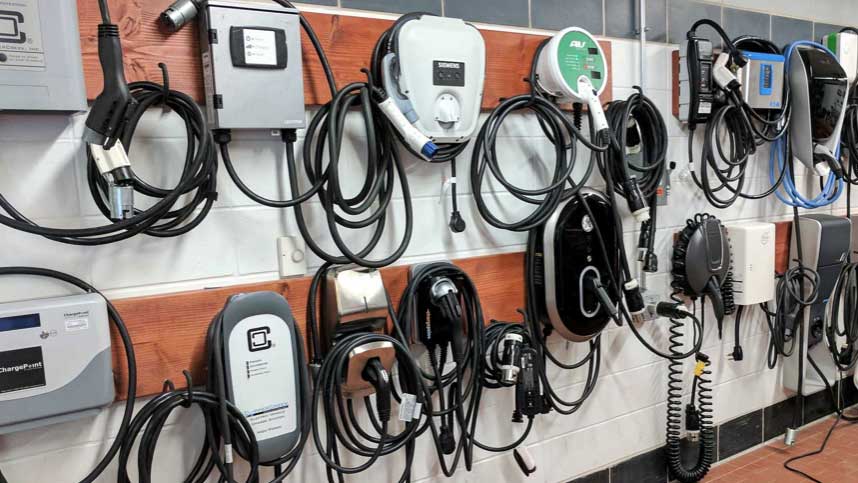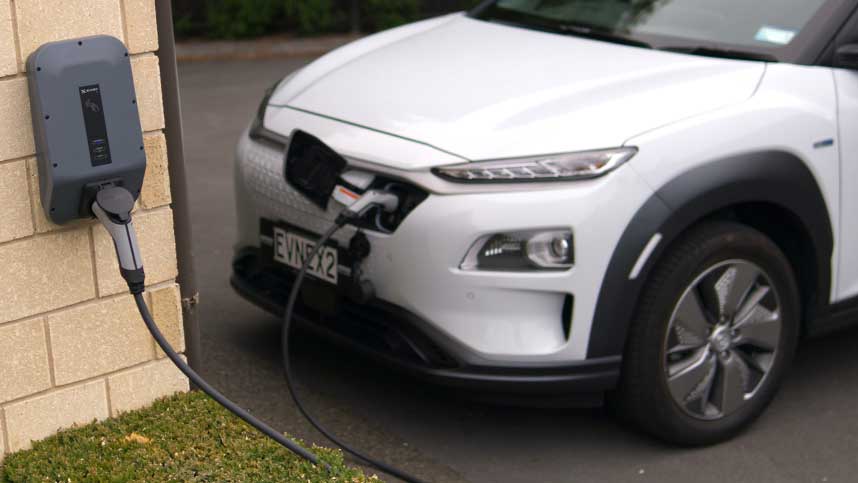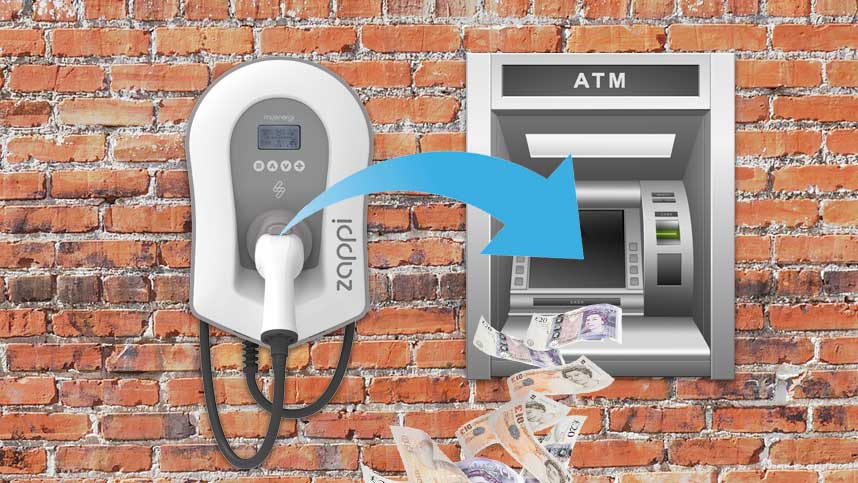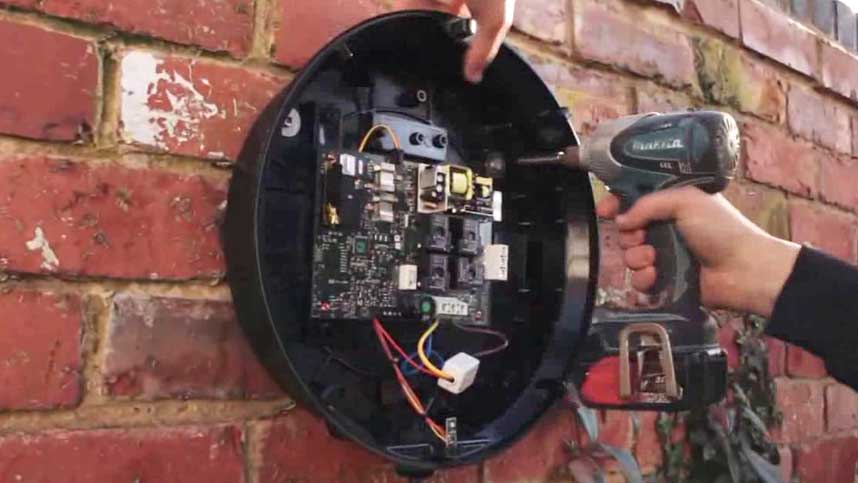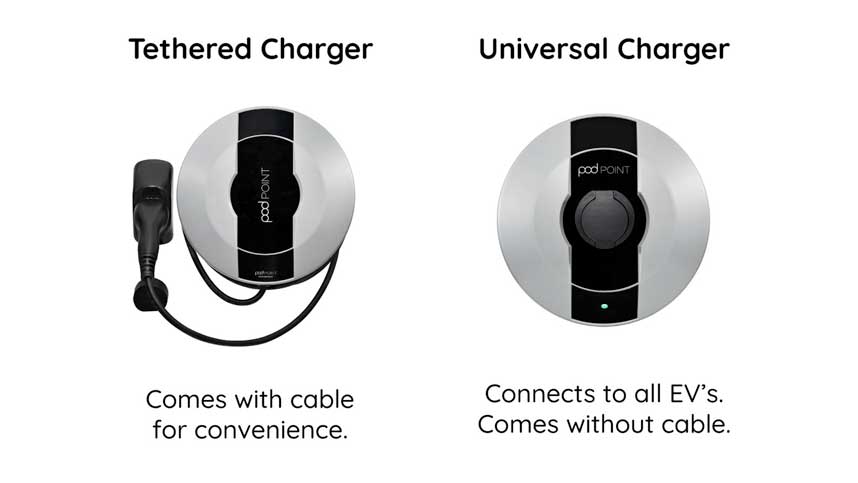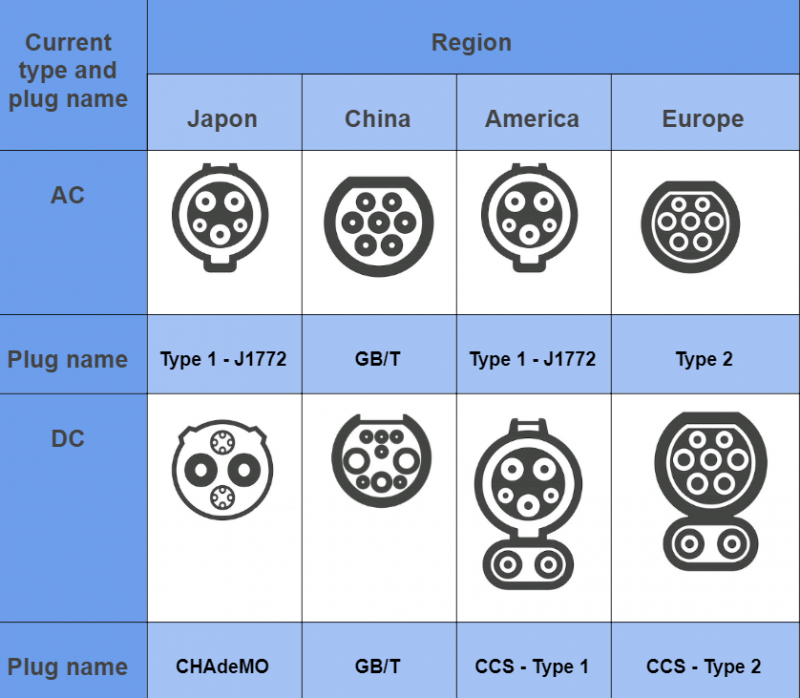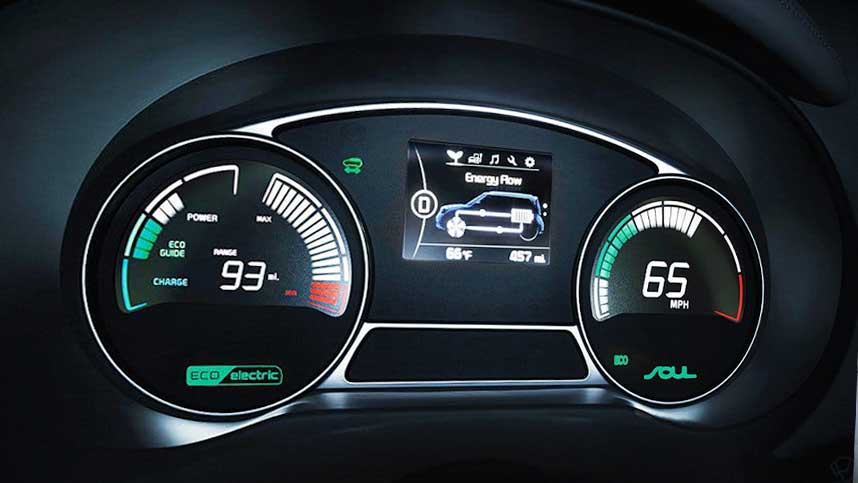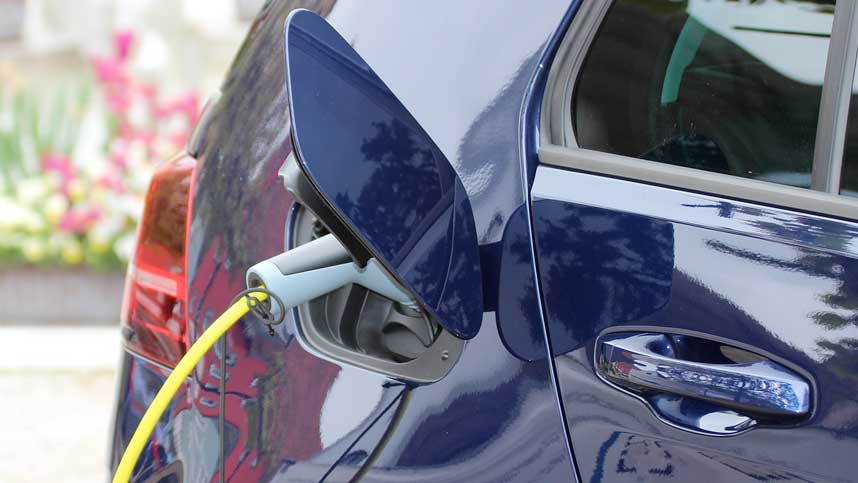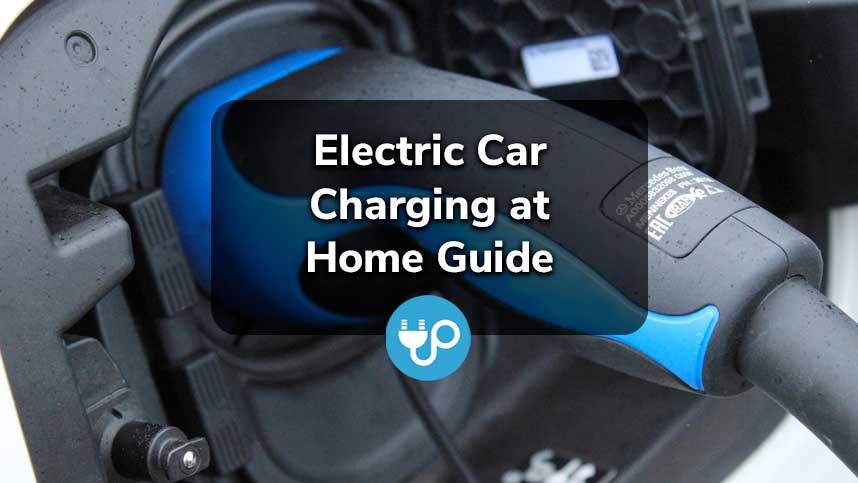
Electric Car Charging at Home Guide
It is a well known fact that with the UK government's upcoming 2030 ban on the sale of on internal combustion engine cars that require petrol or diesel fuel, more and more people are considering investing in electric cars.
If you’re thinking about making the switch to EV, you need to understand some key aspects related to such a vehicle, including the process of electric car charging at home.
Chapters
Why Charge Your Electric Car at Home?
If you can regularly charge your electric car at home, it’s the most convenient and cheapest option.
In order to do this however, you will need to have a driveway or a garage as off-road charging is the most feasible option.
In time, choosing to have an EV charger installed could also increase the resale value of your home.
How to Charge an Electric Car at Home
One of the most common questions related to charging electric cars is whether it is possible to plug it into a regular 3-pin socket.
While this is possible, it is not recommended.
Using a regular 2.4kW three-pin wall socket will end up leading to extremely long charging times.
This could amount to over 35 hours, depending on the type of electric car you drive.
As you can imagine, this means there is a huge demand being placed on the socket for prolonged periods.
If the electrics in your home are old and in need of rewiring, this poses a very real fire risk.
So it is neither feasible nor ideal.
Hence the best option is to get a wallbox charger installed by a qualified electrician.
Charging times will typically be reduced considerably, generally around 8 hours thanks to a 7kW wallbox charger.
What is a Wallbox Charger?
A wallbox charger is basically a standalone charger that is wired directly into the domestic electricity supply.
It is mounted externally, and so it enables you to charge your electric car by simply plugging it in.
Such electric vehicle wall charging units come in various forms and power outputs.
In order to get the best wall charging unit for your electric car, you will need to take into account some key factors.
This includes the rate of power, and the type of socket.
You also need to decide whether to opt for a tethered or untethered charger i.e with or without an integrated charging cable.
You will also need to consider the type of socket as not all electric cars use the same type of plug.
Older EV’s generally use the Type 1 socket, whilst newer models no wuse the type 2 socket.
One of the most important considerations is also the power output rating.
For a typical UK home, it will be up to 7.4kW.
However if you wish to save money on the price of the charger, you may opt for a lower power rating.
However, bear in mind that in such a case it will take longer to charge the car.
So you may end up using more power longer term and lose those initial savings you made on the cheaper charger purchase.
What is a Smart Charger & Should I Get One?
A smart charger is one which has charge points that can be accessed remotely.
This type of charger works by means of an app on a smartphone.
It also allows you to monitor the charging process, as well as decide when to charge your car.
This is an ideal option to save money as you can opt to charge your car while the cost of electricity is lower, such as nighttime tariffs.
However, while smart chargers could help you to save money, it is important to note that the units are considerably more expensive.
Cost of Installing a Home Car Charger
To install an electric car charger, it will typically cost you between £450 and £1200.
The cost depends on various factors, but mainly on the amount of power the wallbox is capable of supplying.
The most affordable chargers are those of 3.6kW.
But there are others that supply 22kW, which are obviously much more expensive but require a 3-phase electric supply to install.
Most UK homes only have single-phase electrics, so this is quite rare.
Besides, you will need to take into account whether your power supply at home can sustain this, and what your car is capable of.
The cost may also increase if you opt for a wallbox EV charger that comes with a longer cable.
As a general rule, the 7kW chargers are the most popular and recommended ones.
These typically cost between £500 and £700 each.
The installation cost is generally included in the price as it is important to have it installed by a professional electrician.
While this may seem like a considerable expense, it’s worth noting that at the end of the day you will be saving money on fuel, and in time it will pay for itself.
Benefits of Installing a Home Car Charger
There’s a number of amazing benefits to having your own EV charger installed on your driveway.
Whilst some advantages are quite obvious, there’s also a few added extra bonuses that many EV owners are not aware of.
Convenience
Being able to charge your electric car at home is super-convenient.
No more trips to the petrol station and filling up your car in all weathers.
Now you simply plug your EV into the wall charger and leave technology to do the rest!
Cost Savings
Most people who make the switch to EV do not realise just how much money they will save on fuel costs.
Yes, your electricity bills will increase.
But the fact is, the savings at the fuel pump will far outweigh the increases in electricity bills you receive.
Additional Income
Did you know you can make some additional income by listing your EV charger on apps like Joosup?
By allowing other EV drivers to park and charge on your driveway, you can make a nice income as an added bonus.
Most EV wall chargers sit unused for hours, if not days on end.
So why not turn your wall charger into an income generating machine, whilst helping to make the world greener at the same time?
You’ll help other motorists switch to EV quicker, whilst adding extra money into your pocket which can cover the electric car charging costs that increase electricity bills.
It’s a win win!
How to Get an EV Charger Installed
The best option is to arrange for installation through the company that is selling the wallbox.
In certain cases, car leasing firms are bundling the installation of EV wall chargers with the contract as an up sell.
Alternatively, if you buy the unit on its own, you will need to get a professional electrician to see to the installation.
It is important that he has accreditation from the manufacturer of the charger.
The location for fitting will need to be fully assessed by a professional.
In cases where the wallbox is installed a long way from the fuse box or consumer unit location, the wiring may need to be upgraded accordingly.
In such cases, you may have to pay a higher installation fee.
Tethered or Untethered EV Charger?
An untethered EV charger unit, sometimes referred to as a Universal Charger, will have no attached charging cable.
Whilst a tethered EV charger will have an integrated cable and socket of your choice.
Obviously the latter is more convenient as you can simply park and plug it in to charge, rather than having to retrieve the car’s charging cable from the boot every time you charge.
For untethered charging units, you’ll need to use the cable supplied with your EV and plug it into the charger at one end, and the vehicle at the other.
This may seem a little more inconvenient, but some owners prefer this option.
The added bonus with untethered units is, you can charge other cars that park on your driveway, such as friends, family and visitors.
So this option does offer more flexibility, especially if some EV owners are driving cars with different socket types to yours.
Do All EV’s Use the Same Type of Socket?
Most modern EV’s use a Type 2 connector but there are some that have the older Type 1 socket.
There are, however, Type 1 to Type 2 converters available.
Can You Charge an EV Using a Regular Power Outlet?
Most electric cars come with a portable slow charger which can be used with a 3-pin plug in a domestic power socket.
The charging output in this case is around 3.5kW.
This is considered a slow charging rate, leading the EV to take several hours to achieve a full charge.
Hence, while charging an EV using a regular power outlet is possible, it is definitely not a recommended route to take.
How Long Does It Take to Charge an EV?
The charging speed for electric cars is measured in kW.
How long it takes to charge your EV depends on the power.
For instance a 7kW charging point will give on average about 15-30 miles of range for each hour of charging.
The maximum charging speed may also be limited by the EV’s onboard charger.
This depends on the car, as some older models only allow up to 3.6kW.
In that case you cannot opt for a 7kW charger for example, as this would end up damaging the car.
How Can I Speed Up EV Charging?
In cases where your car can receive an AC charge of 11kW or 22kW, then it would be possible to speed up charging times.
However, in order to do this you’ll need a three-phase connection.
Unfortunately, most UK homes do not have such a connection.
Most houses have a single phase connection, that is, there is one live wire.
On the other hand, if there is a three-phase connection, there would be three live wires which can offer a faster power supply.
How to Tell If You Have a 3 Phase Connection
To check whether you have a 3 phase connection, you’ll need to look at your fuse box.
This is where the electricity supply enters your house.
If it has one 100 amp fuse then it means it is a single phase connection.
If however there are three fuses, then you have a three phase connection.
The three phase network is widespread across the UK, so if you have a single-phase connection you may wish to consider upgrading to a three-phase one.
How Often Should You Charge Your EV at Home?
You can charge your EV as often as you need.
It is practically just as if you were charging your mobile phone.
The best option is to have the car charging overnight, and if necessary this can be topped up during the day.
This also gives you the chance to take advantage of cheaper nighttime electricity rates.
Moreover, with overnight charging you can have the peace of mind that the car’s battery is full each morning.
So if an unexpected journey needs to be done the following day, you won’t have to worry.
Tips to Charging an EV at Home
Cheaper Energy Tariffs
If you have an EV you will undoubtedly save on fuel costs.
But inevitably, your home energy bills are going to be higher than before.
However, you can take advantage of cheaper energy tariffs by scheduling your car to be charged during the night when rates are cheaper.
You may also wish to consider using a smart charger which offers you more convenience when it comes to scheduling your car charging.
This can be done simply from an app on your smartphone.
You will also be able to keep track of the cost of kWh used.
Green Sustainable Energy
Electric cars help us to be greener.
And this is obviously very important in this day and age.
Charging with renewable energy makes electric cars increasingly environmentally friendly.
There is a continuous commitment to make the UK’s grid greener by ensuring more renewable energy generation, such as by wind and solar power.
So you may wish to consider switching to a renewable energy provider.
Conclusion
Around 80% of electric cars are charged at home, and hence it’s important to make sure that you have the right technology to ensure the most convenient and cost effective charging.
With an electric car you can do your part for a greener and more sustainable future, and reduce harmful emissions in your community.
Blog Archive
- Where Can I Charge My Electric Car?
- Electric Car Maintenance and Servicing Guide
- How Often Should I Charge My Electric Car?
- How to Check EV Battery Health
- Do Electric Cars Pay Road Tax?
- October 2024 Budget: Key EV News
- EV vs ICE – Which is Best?
- Should I Charge My EV to 80 or 90 or 100%?
- UK Government Announces Hybrid Sales Allowed Until 2035
- BEV vs PHEV – What’s the Difference?
- Definitely Not A Guru (Jim Starling) Reviews Joosup
- How Long Do Electric Car Batteries Last?
- 25 New Electric Car Brands on UK Roads
- General Election 2024: Major Party Net Zero Policies Compared
- Electric Car Service Costs vs ICE
- CHAdeMO vs CCS – What’s the Difference?
- Mr EV Reviews Joosup
- What is the ZEV Mandate?
- Spring 2024 Budget: No VAT Rate Cut on Public EV Charging
- What is Regenerative Braking?

